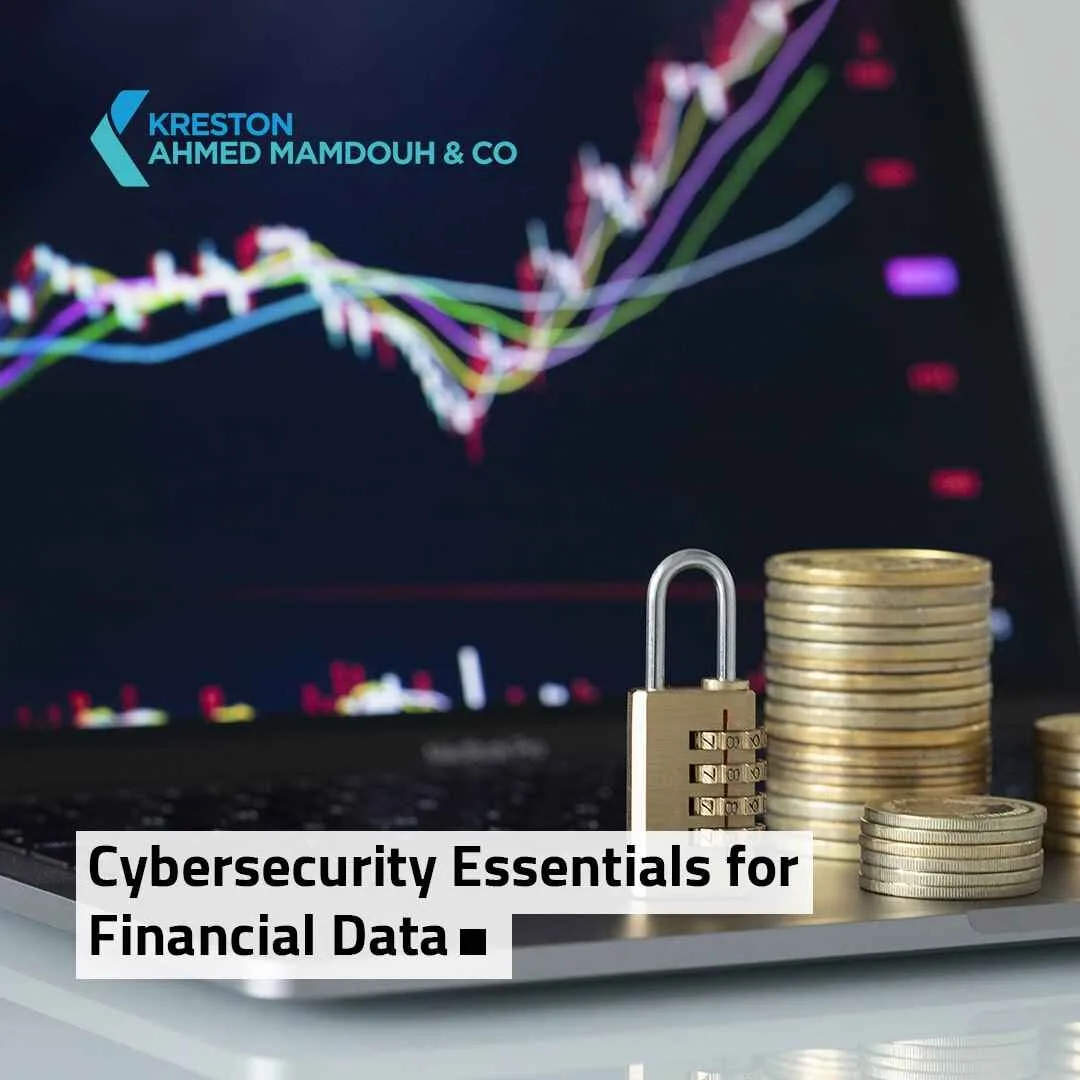Cybersecurity Essentials for Financial Data

Understanding Cyber Threats and Implementing Best Practices for Secure Financial Information
In today’s digital world, safeguarding financial data is a mandate, especially for corporations and organizations where sensitive financial information acts as a prime target for cybercriminals. The business landscape faces an ever-growing threat landscape, with cyberattacks targeting financial institutions and businesses becoming increasingly prevalent. For example, the Middle East and North Africa (MENA) region has witnessed a concerning rise in such incidents.
The MENA region has seen a concerning rise in cyberattacks targeting its financial institutions. In 2020, a cyberattack compromised the systems of the Central Bank of the United Arab Emirates (UAE), highlighting the vulnerability even well-resourced institutions face. Further illustrating the growing threat, 2018 witnessed coordinated attacks on several Saudi Arabian banks, including the National Commercial Bank (NCB) and the Saudi British Bank (SABB). Qatari National Bank (QNB), the largest bank in the Middle East, also fell victim to a cyberattack in 2017, resulting in the theft of sensitive customer data. These incidents serve as stark reminders of the evolving and sophisticated nature of cyber threats. Businesses must understand and address these challenges proactively to protect their financial data.
Common Cybersecurity Threats to Financial Data:
The digital age offers a double-edged sword for businesses: it offers incredible opportunities for growth and connectivity and exposes them to a multitude of cyber threats. In the area of financial information, several particularly dangerous tactics stand out, each requiring vigilance and robust defence mechanisms. Let’s delve into four prevalent threats that aim to exploit vulnerabilities and compromise your valuable financial data:
- Phishing Attacks: These deceptive emails or messages attempt to deceive individuals into disclosing sensitive information like login credentials or credit card details.
- Malware: Malicious software, often disguised as legitimate programs, can steal data, disrupt operations, or hold information hostage through ransomware.
- Data Breaches: Unauthorized access to sensitive data occurs through systems vulnerabilities or human error, putting financial information at risk.
- Social Engineering: By manipulating individuals through psychological tactics, attackers can access sensitive information or systems.
Importance of Cybersecurity for Financial Data Protection:
In today’s digitally driven world, safeguarding financial data is not just a best practice but a critical necessity and an important risk mitigation that ensures sound corporate governance. Robust cybersecurity measures offer many benefits for businesses, protecting their financial assets and reputation. Let’s explore the key reasons why prioritizing financial data security is paramount:
- Protects Financial Assets:Robust cybersecurity safeguards your company’s financial assets from unauthorized access and fraud.
- Maintains Client Trust:Effective data protection fosters trust and confidence with clients, demonstrating your commitment to safeguarding their sensitive information.
- Ensures Business Continuity:Cyberattacks can cripple business operations. Proactive cybersecurity measures minimize downtime and ensure smooth business continuity.
- Complies with Regulations:Many industries have regulations mandating specific data security practices. Implementing robust cybersecurity ensures compliance and avoids potential legal repercussions.
Essential Strategies and Best Practices for Protecting Financial Data:
The ever-evolving landscape of cyber threats enforces a proactive approach to safeguarding your valuable financial data. Fortunately, numerous effective strategies and best practices can significantly bolster your defences. By implementing a multi-layered approach and fostering a culture of cybersecurity awareness, businesses can significantly mitigate risks and protect their sensitive information. Let’s explore some key strategies to consider:
- Implement robust password policies:Enforce complex, unique passwords for all accounts of company network users and encourage regular password changes.
- Utilize Multi-Factor Authentication (MFA):Adding an extra level of security by mandating a second verification step beyond just a password.
- Regularly update software and systems:Patching vulnerabilities promptly protect your systems from known exploits.
- Educate employees on cybersecurity awareness:Train employees to identify and prevent phishing attempts and other social engineering tactics.
- Secure your data:Encrypt sensitive information at rest and in transit and restrict access to authorized personnel only.
- Backup data regularly:Maintain secure data backups to ensure recovery in case of a cyberattack or system failure.
- Implement a layered security approach:Combine firewalls, intrusion detection systems, and endpoint security solutions for comprehensive protection.
Ahmed Mamdouh & Co. Kreston Egypt Insights in Safeguarding Financial Data:
Ahmed Mamdouh & Co. Kreston Egypt understands the criticality of financial data security. We leverage our extensive experience and expertise to offer clients: Security assessments:Identify vulnerabilities and recommend tailored security solutions.
- Data encryption services:Securely store and transmit sensitive information.
- Cybersecurity training:Equip your employees with the knowledge and skills to combat cyber threats.
- Ongoing cybersecurity monitoring and support:Proactively monitor your systems and provide ongoing support to address potential issues.
Conclusion:
Cybersecurity is a continuous journey rather than a destination. By prioritizing financial data security, implementing best practices, and seeking expert guidance like that offered by Ahmed Mamdouh & Co. Kreston Egypt, businesses can significantly enhance their digital resilience and safeguard their valuable assets. Remember, staying vigilant and proactive is key to protecting your financial information in today’s ever-evolving threat landscape.
References:
- 2020 Central Bank of UAE Cyberattack: https://www.bleepingcomputer.com/
- 2018 Saudi Arabia Bank Attacks: https://www.reuters.com/article/idUSL5E8N91UE/
- 2017 Qatari National Bank Cyberattack: https://www.wsj.com/articles/qatar-alleges-attacks-on-currency-1516720729
- National Institute of Standards and Technology (NIST) Cybersecurity Framework: https://www.nist.gov/cyberframework
- Cybersecurity & Infrastructure Security Agency (CISA) – Tips for Businesses: https://www.cisa.gov/audiences/small-and-medium-businesses
- Multi-Factor Authentication (MFA) Guidance: https://www.nist.gov/itl/smallbusinesscyber/guidance-topic/multi-factor-authentication